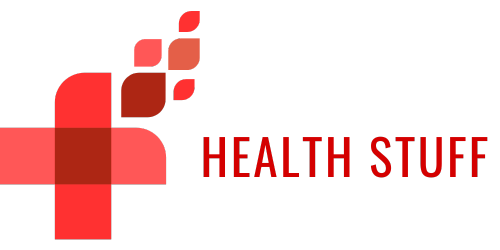Why reminders help your patients
Patient reminders and how they work
In the process of building stronger and better bonds with your patients, communication plays the biggest part. Good patient communication is key to a successful patient journey in healthcare. Reminders are there to keep close communication with patients and provide timely, relevant, and important information. Therefore, reminders play a key role in healthcare and help your patients. In this article, we will take a look at all of the different ways reminders can help patients and what they actually mean.
Patient reminders - What are they exactly?
So, to begin with, we should start by thoroughly explaining what patient reminders actually mean in healthcare. One of the common problems that many healthcare practices face is cancellations. Patients who do not show present a problem for health care service providers. Therefore, reminders are there to help out.
The basic definition is that patient reminders are automated texts, emails, or calls that serve to remind patients of their upcoming appointments changes in schedules, and other relevant information related to their healthcare journey. Their primary goal is to reinforce attendance.
In addition to this, patient reminders may also remind patients to confirm the previously scheduled appointments. Automated patient reminders are slowly but surely taking over the load from the front office staff that may need to focus elsewhere. They are becoming increasingly popular throughout the world as healthcare is gradually moving towards digitalization more and more. So, how exactly do they work? Well, the process is fairly simple. Once your patient has been added to the calendar/schedule, patient management system, or patient reminders, notify that patient of any upcoming appointment or confirmations.
The main benefits of reminders and how they help your patients
There are quite a few reasons why reminders can help clinics and patients. Since both clinics and patients benefit from reminders, they are becoming used more and more in healthcare. Let us now take a look at all of the different ways patient reminders help clinics and patients with automated texts and emails.
They increase confirmation of appointments and lower the stress on front office staff
We have already mentioned that reminders help maintain relationships and communication with patients. Furthermore, they also greatly reduce the strain put on your front office staff. Receptionists, staff at call centers, and other fronts office-based staff will have to work tirelessly to substitute the efficiency of automated responses and reminders. This is, of course, inefficient and almost impossible. That is why automated reminders free up your front office staff, are reliable, and can work 24/7. How do patients benefit from this? Well, they can always be sure that an automated, timely response, confirmation of appointments, and so on, will be received on time. Patients can receive better and more timely information from the clinic. In turn, their satisfaction rises and trust in your services becomes stronger. Additionally, that means that the relationship between the health care services providers and patients is built in a better, more efficient manner.
Reminders can help with the waiting lists
Apart from helping your front office staff and patients with timely information and confirmation of appointments, these reminders also clear up the waiting list. We all know how frustrating the waiting lists can get. Someone misses an appointment and a different patient could have potentially had that appointment slot, thus creating a problem. However, with patient reminders, they can identify and notify you of canceled appointments. Therefore, someone from your waitlist has a chance to get scheduled.
Minimize no-show rate with reminders
Both patients and doctors can be extremely busy. Any no-show can be quite impactful and waste a lot of time. However, this does not have to be the case. Patient reminders are there too timely remind patients of the upcoming appointments. Thus, even if a patient is busy, and because of the various other obligations that he or she may have, a reminder will send the notification on time to confirm the upcoming appointment. Communication through these automated responses can also allow patients to reschedule missed appointments. Tracking absent patient services will help educate and capture a new scheduling. Reschedule the missed appointment and educate the patient who does not attend easily with the use of automated patient reminders.
They increase patient satisfaction and trust
Overall, patient reminders are great because they are automated responses that will reach your patients through emails, and texts. A call from the front office staff may interrupt your patient or he or she may not be able to answer it right away thus increasing the risk of a missed reminder. However, with texts, your patients are not disturbed and are still reminded of the upcoming appointment on time.
How to properly form your automated patient reminders
To be efficient, patient reminders have to be timely but also concise. An automated text that your patient struggles to open and read is not a good reminder. So, patient reminders need to have a few basic but important characteristics such as:
-
Being brief. A reminder is there to notify the patient about the upcoming appointment. Anything above that may be a bit too much and unnecessary in the initial exchange of texts.
-
A response request. Reminders should allow your patients to respond. This will allow your patients to confirm the appointment, cancel it, postpone it, reschedule it, and so on.
-
They need to be timely. It is not simply enough to send a patient reminder. They have to be sent at the right moment. A simple reminder 24 to 72 hours before the appointment should be optimal.
-
Personalized reminders. Each patient is different. Reminders are most effective when they are personalized. Each reminder should start with a greeting and the recipient's name. The doctor's name should also be included in the message.
So, to conclude, as you can see, patient reminders are great for both patients and clinics. Reminders enable faster, more efficient communication with patients. Furthermore, they also come with a great number of different benefits that we have mentioned above. However, keep in mind that automated reminders as texts need to be concise, timely, personalized, and allow for a response request.
 English
English Español
Español
